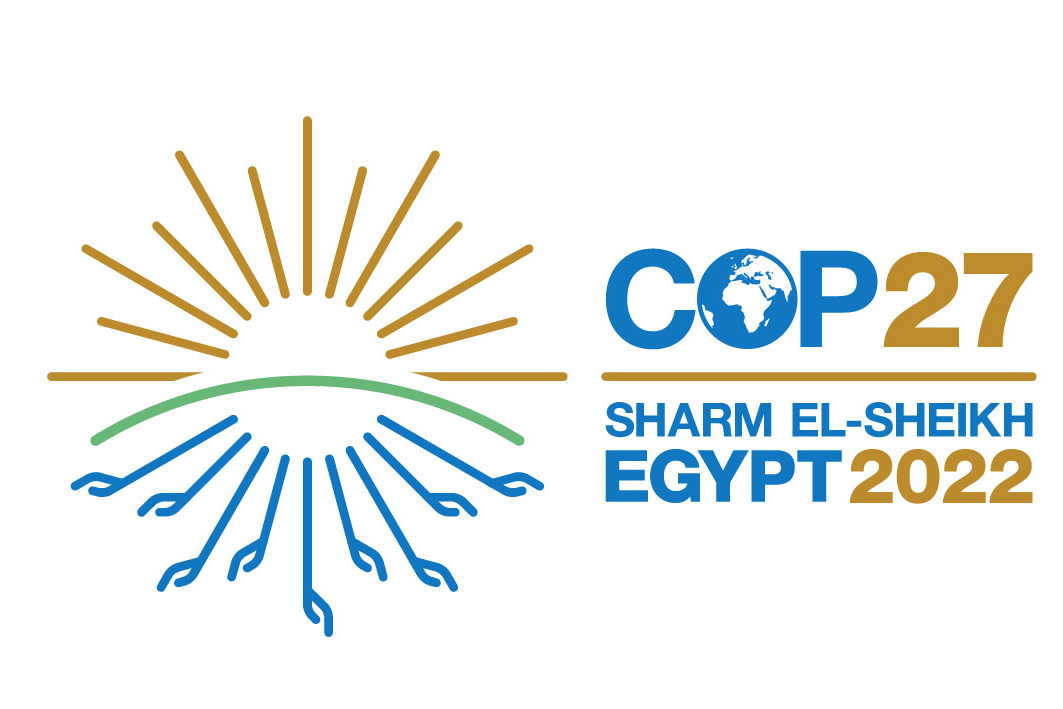COP 27: The 12 initiatives to follow for climate action in Africa
[March 2024] The annual UNFCCC COPs are crucial for advancing climate negotiations and assessing parties' implementation of the UNFCCC. This note examines the key initiatives announced at COP27, which was held in Sharm El-Sheikh in November 2022 under the presidency of Egypt.

Analysis note by the Observatory of Climate Action in Africa
Each year, the Conferences of the Parties (COPs) to the United Nations Framework Convention on Climate Change (UNFCCC) are key meetings for advancing climate negotiations, examining the implementation of the UNFCCC by the parties, and adopting the decisions necessary to achieve the objectives set. It is also a good time for new international cooperation initiatives to be launched or announced, particularly in the framework of the action agenda (Marrakech Partnership, Race to Zero, etc.) for non-state actors.
Taking a look back at the major initiatives announced at COP27, organized under the presidency of Egypt in Sharm El-Sheikh in November 2022, this note aims to present the most important initiatives that were identified.
- Author : Mélaine Assè-Wassa Sama, Chargé de projet Action climat en Afrique
- Date : March 2023
- Summary
- Food and Agriculture for Sustainable Transformation initiative (FAST)
- The Africa Just & Affordable Energie Transition (AJAETI)
- Global Shield Against Climate Risks
- Enhancing Nature-based Solutions for Climate Transformation (ENACT)
- African Women’s Climate Adaptive Priorities (AWCAP)
- Friends of Greening National Investment Plans in Africa and developing countries initiative
- Action on Water, Adaptation and Resilience (AWARE)
- Reducing the Cost of Green and Sustainable Borrowing
- YOUTH PACT
- Africa Carbon Markets Initiative (ACMI)
- Sustainable Urban Resilience for the Next Generation (SURGE)
- Low Carbon Transport for Urban Sustainabilty (LᶜO₂TUS)
Food and Agriculture for Sustainable Transformation initiative (FAST)
Sector : Agriculture
Partner institutions : FAO
Objective : « Improving the quantity and quality of climate finance contributions to transform agriculture and food systems by 2030 ».
Summary :
Led by the FAO and supported by the Egyptian Presidency of COP27, the FAST initiative aims to support the adaptation process while maintaining a 1.5 °C trajectory. This initiative will contribute to the transformation of agri-food systems to « offer a triple win: for people, for the climate and for nature« . In this framework, a platform will be created to collect, share and disseminate knowledge, good practices and lessons learned on climate action in agri-food systems. Conceived as a multi-stakeholder partnership, FAST will build on « ongoing global and regional initiatives and coalitions to take effective action and avoid duplication« . FAST is part of a broader effort to find solutions to the problem of the availability of and access to climate finance, which remains insufficient while needs are growing. To this end, FAST will initiate capacity building sessions for countries to identify and access climate finance and investments. The initiative is open to governments and state institutions, international organizations, non-governmental organizations, companies, startups, and other private sector actors that commit to identifying and implementing relevant projects with a specific focus on Africa.
To participate in the initiative, a form is available here.
Source : Link
The Africa Just & Affordable Energie Transition (AJAETI)
Sector : Energy
Partner institutions : IRENA, International Energy Agency (IEA), Sustainable Energy for All (SE4All)
Objective : To Ssrengthen technical and policy support for just and affordable energy transitions in Africa to ensure access to affordable energy by 2027 for at least 300 million Africans. It aims to increase the share of renewable electricity generation by 25% by 2027 in Africa.
Summary :
AJAETI is an initiative supported by actors such as IRENA, IEA and SE4All to promote a clean energy transition in Africa. By providing an umbrella for existing energy initiatives in Africa, this initiative contributes to the achievement of the SDG target 7.1 for universal access to clean energy by 2030. AJAETI will help identify appropriate and affordable strategies for a clean energy transition. The initiative is open to States and state institutions, international organizations, non-governmental organizations, companies, startups and other private sector actors who commit to identifying and implementing relevant projects with a specific focus on Africa.
To participate in the initiative, a form is available here.
Source : Link
Global Shield Against Climate Risks
Sector : Financing/ climate risks
Partner institutions : V20, G7
Objective : To improve the financial protection of populations in vulnerable countries against climate-related disaster risks.
Summary :
This initiative was launched on November 14, 2022 by the group of the most vulnerable countries (V20) and the G7. The Global Shield aims to help people cope with the impacts of global warming. This will be done through a « pre-organized financing » mechanism accessible before or just after a climate disaster. The Shield also provides for insurance schemes against « damage to crops, buildings or business interruption ». Initial contributions include about 170 million euros from Germany and over 40 million euros from other countries. Bangladesh, Costa Rica, Fiji, Ghana, Pakistan, the Philippines and Senegal will be the first beneficiaries.
Source : Link
Enhancing Nature-based Solutions for Climate Transformation (ENACT)
Sector : Biodiversity/climate
Partner institutions : IUCN, Egyptian Presidency of COP 27
Objective : Promote Nature-based Solutions and foster rapprochement with the Rio Conventions.
Summary :
Launched by the Egyptian Presidency of COP27 in collaboration with IUCN, the ENACT partnership aims to create a coherent framework for exchange and collaboration between Parties and actors working and promoting nature-based solutions (NBS). The partnership also aims to bring at the global level the advocacy for an alignment between climate, land degradation and biodiversity negotiations. The initiative is open to States and state institutions, international organizations, non-governmental organizations, companies, startups, and other private sector actors who commit to identifying and implementing relevant projects with a specific focus on Africa.
To participate in the initiative, a form is available here.
Source : Link
African Women’s Climate Adaptive Priorities (AWCAP)
Sector : Gender/Climate
Objective : To ensure the inclusion of women in the just transition to a future that is resilient to climate change.
Summary :
The AWCAP initiative, launched by the Egyptian Presidency of the COP, aims to strengthen the inclusion of women in the climate change transition and adaptation process. AWCAP envisions 3 areas of action:
– « Promoting gender-sensitive perspectives in adaptation, mitigation and responses,
– Leveraging opportunities for women in the just transition to the green economy and green consumption patterns and in the blue economy in the context of achieving sustainable development,
– Promote educational and behavioural change on women and climate change. »
AWCAP will ensure the equitable inclusion of women in these « green » job retraining projects. It will also ensure that women benefit from the massive influx of funding dedicated to green entrepreneurship.
To participate in the initiative, a form is available here.
Source : Link
Friends of Greening National Investment Plans in Africa and developing countries initiative
Sector : ‘’Green » investments
Objective : « Advocate, coordinate and streamline policies that facilitate the transition of national investment plans and economic policies towards low-emission development and fairer, more climate-resilient pathways. »
Summary :
The Friends of Greening National Investment Plans in Africa and Developing Countries initiative aims to shape the planning and design process of economic policies to take into account the impact of climate change, quantify mitigation and adaptation efforts, and identify gaps and needed support in the countries involved. To this end, the initiative will « propose a set of guidelines, criteria and policy advice, to accelerate the implementation of their NDCs to achieve the objectives of the UNFCCC and its Paris Agreement, in the context of sustainable development and poverty eradication efforts. »
Source : Link
Action on Water, Adaptation and Resilience (AWARE)
Sector: Adaptation/ Water
Partner institutions : African Union (AU), African Ministers’ Council on Water (AMCOW)
Objective : « Decrease global water losses and improve water supply, propose and support the implementation of mutually agreed policy and methods for cooperative water-related adaptation action and its co-benefits, promote cooperation and linkages between water and climate action in order to achieve the 2030 Agenda, in particular SDG 6. »
Summary :
The AWARe initiative aims to catalyze inclusive cooperation that understands water resources as a key to climate change adaptation and co-benefits, as well as resilience. To this end, the initiative aims to provide financial support to local, national and regional activities on irrigation and drought-resistant crops. It envisages the establishment of regional cooperation in research and innovation, with a focus on the water-food nexus. AWARe will also provide support to countries in water resources assessment and water accounting. The AWARe initiative will build on the Water and Climate Coalition, the Coalition for Action on Adaptation, and the Marrakech Partnership for Climate Action and contribute to the adaptation goal.
Source : Link
Reducing the Cost of Green and Sustainable Borrowing
Sector : Finance
Objective : Attracting private sector financing in Africa through Green Social and Sustainable Bonds (GSS).
Summary :
An initiative to make green bonds available to developing countries to increase private investment in Africa in particular. The initiative will aim to build the capacity of developing countries to reliably access bond markets, create a sustainable sovereign debt centre to facilitate climate and nature aligned sovereign debt issuance.
Source : Link
YOUTH PACT
Sector : Finance
Partner institutions : ILO, UNEP, UNICEF, LINKEDIN
Objective : « Bridging the skills gap for youth in developing countries, targeting climate-vulnerable sectors and creating one million green jobs. »
Summary :
The Youth Pact initiative is a partnership between the International Labour Organization (ILO), the United Nations Environment Programme (UNEP), the United Nations Children’s Fund (UNICEF) and the LinkedIn platform. This partnership aims to bridge the skills gap of young people in developing countries through the creation of one million green jobs, the greening of one million existing jobs and the support of thousands of entrepreneurs.
Source : Link
Africa Carbon Markets Initiative (ACMI)
Sector : Compensation/ Climate
Partner institutions : UN High Level Champions for Climate Change, Sustainable Energy for All (SE4All), Economic Commission for Africa (ECA), Global Energy Alliance for People and Planet (GEAPP)
Objective : Developing voluntary carbon markets across Africa
Summary :
Launched at COP 27, the Africa Carbon Markets Initiative (ACMI) aims to develop voluntary carbon markets in Africa and accelerate Africa’s participation in the global carbon market. To achieve this, the ACMI has developed 13 action programs that mainly aim to
- Launch national activation plans for several countries. Seven countries have already committed to developing their respective plans (Kenya, Gabon, Malawi, Mozambique, Togo, Nigeria and Burundi).
- Advance market commitments with an ambition of up to $1 billion for the purchase of high integrity African credits.
- Develop projects based on new methodologies and African realities such as diesel replacement credits and biodiversity credits.
- Growing a significant volume of credits on the continent.
At the initiative’s launch at COP27, $200 million was secured in advanced market commitments from global companies. ACMI aims to reach more than 1.5 billion credits per year in Africa by 2050, mobilizing more than $120 billion and supporting more than 110 million jobs.
Sustainable Urban Resilience for the Next Generation (SURGE)
Sector : Cities/ Climate/Habitat
Partner institutions : Egyptian Presidency of COP 27, UN Habitat, ICLEI – Local Governments for Sustainability
Objective : « Strengthening and accelerating local and urban climate action. »
Summary :
The SURGe initiative is led by the Egyptian Presidency of COP27, in collaboration with UN-Habitat and ICLEI. SURGe aims to strengthen and accelerate local and urban climate action through multi-level governance, engagement, assessment and management of climate risks at the local and urban level through multi-level governance, engagement and implementation. It is a platform that brings together a diversity of actors such as local, regional and national governments, NGOs, financial institutions, international organizations, city networks and researchers. The initiative is divided into several working groups corresponding to the five identified axes, namely buildings and housing, urban energy, urban waste and consumption, urban mobility and urban water. SURGe builds on existing work and commitments of local and regional governments to give new impetus to existing initiatives and provide a comprehensive framework for the development of sustainable and resilient urban systems. To achieve its goals, the SURGe initiative aims to strengthen the implementation of the climate agenda in and with cities, unlock urban climate finance, build the capacity of actors, accelerate technology and innovation in cities and ensure equity. The initiative is open to States and state institutions, international organizations, local governments, non-governmental organizations, businesses, startups and other private sector actors.
To participate in the initiative, a form is available here.
Source : Link
Low Carbon Transport for Urban Sustainabilty (LᶜO₂TUS)
Sector : Mobility/ Transport/Climate
Partner institutions : Egyptian Presidency of COP 27, Partnership on Sustainable, Low Carbon Transport (SLOCAT), Boston Consulting Group (BCG)
Objective : « Improving and decarbonizing the urban mobility landscape. »
Summary :
LᶜO₂TUS is an initiative that aims to improve and decarbonize the urban mobility landscape through a new systemic approach. This initiative aims to provide an answer to the following 5 challenges identified in the field of urban transport: financial gaps, weak policy making, lack of policy coherence, difficulties around the integration and regulation of informal transport and siloed thinking around transport modes. To this end, LᶜO₂TUS proposes a response that is broken down into 3 areas of action:
- Increasing investment in electric vehicles and sustainable mobility infrastructure,
- Empowering and investing in informal transport to decarbonize and mobilize towards SDG 11 – Sustainable Cities and Communities, achieving climate resilience and developing a global agenda for just transition and transformation,
- Build capacity to develop integrated, multi-modal policy frameworks in low- and middle-income countries.
The initiative is open to States and state institutions, international organizations, non-governmental organizations, companies, startups, and other private sector actors who commit to identifying and implementing relevant projects with a specific focus on Africa.
To participate in the initiative, a form is available here.
Source : Link







